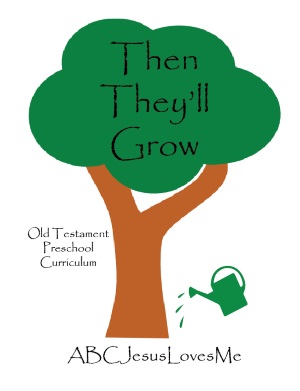
I see a new trend happening and I can’t get on board.
Am I afraid of change? Am I archaic? Maybe. But I do not believe that my personality and age are the issues in this case.
Honestly, I believe this new trend is devastating to our children.
Let me explain.
I don’t know when the change occurred but some time between when I was a child and now, a mindset has developed that children must be entertained at church to learn the Bible. This entertainment requires multiple props, fast music, videos, high volume, and a great amount of energy from an adult to teach the children about Jesus.
Sure, it gets the children really excited and keeps their focus for a while. But at what expense? The adults are wiped out after each lesson trying to keep their energy level up. And then the adults spend days trying to up the ante for the next lesson. A constant cycle to do more.
Then there is the frustration of why children won’t sit still and listen, yet the adult has amped them up without a method to help the children calm down. Other children are on sensory overload and can’t participate. Then additional children simply watch trying to take it all in instead of being able to participate.
And then after church is over we wonder why the children can not repeat any aspects of the Bible story.

Mr. Rogers’ Neighborhood
A few days ago my elementary-aged children were watching a Mr. Rogers’ Neighborhood rerun. It was a rare opportunity for them to use media. I love this time-less program because I never worry about the content shared by Mr. Rogers and love what is taught in each episode.
In this specific episode Mr. Rogers sat in the kitchen doing something with blocks. There was absolutely nothing exciting about what he was demonstrating. There were even times when he stopped talking and gathered supplies. But I noticed something interesting in my children’s eyes…they were engaged in the learning.
Beginning in 1968, Fred Rogers never did anything flashy or at a quick speed. 895 times Mr. Rogers sat before a camera using simple props and repeating the same message over and over. And yet almost 50 years later, the reruns are still playing.
And it hit me.
My conviction is correct. Children don’t need to be entertained.

Children Need…
Children need to know they are loved.
Children need an adult who they know will handle any situation that arises in their classroom. This produces a safe atmosphere.
Children need firm boundaries so there is no ambiguity on what is expected.
Children need truth taught in an age-appropriate way.
Children need fun, but not Disney World every time that they grace the church doors.

Teaching the Bible
God used this conviction to lead me in writing the ABCJLM Then They’ll Grow Bible Curriculum. The curriculum teaches children who God is through Bible stories. The curriculum does not include fast songs, high energy videos, or suggestions for lighting. Instead, each of the 52 weekly Lesson Plans include activities and a script to empower an adult to tell the children a Bible story using visuals, props, and actions. The fun activities are simple yet specific to further the Bible learning.
Oftentimes adults confuse simple with boring. It’s quite the contrary. Simple allows a child to focus on one aspect of learning at a time. Simple doesn’t overstimulate the child. Simple allows for repetition which is how a child learns. Simple allows the adult to be prepared and not overwhelmed with details.
What is Your Goal?
So I ask you this question, “What is your goal?”.
If your goal is to entertain children then videos, lights, and high energy is what you need.
If your goal is for the children to learn, strip away the extras and get back to the basics.
It worked for Mr. Rogers.

(1) Thank you for your boldness! We have 6 children (2-20yrs) and have gone against the grain and kept them with us during service. We have seen that when children are not in service they have not had the opportunity to be trained to be a participant – both in singing, standing when required, prayer, and listening to the pastor. When Children’s School is filled with physical games, movies, candy as prizes, crafts etc. it is no small wonder that when they are in service they find it incrediby dull. I would even go so far as to include parents who allow their children to bring books, doodling, and toys (and to sit/lounge when we are asked to stand for readings and singing) as losing an opportunity to train them to respect the service and feel a member of the congregation. Churches that offer a separate, “more exciting,” teen group creates a social club between the genders that often are flirtatious.
(2) And in teen services there are adults who have to field some very personal and sensitive topics and give spiritual advice that should belong to the authority of their parents instead. And when they leave home they are not going to look at any traditional service as appealing and instead be constantly looking for a church that satisfies them first. Thank you again for the article. I appreciate that there are many adults who had very positive experiences in Sunday School and we have often wondered if the compromise would be to have the Sunday schools for everyone (children and adults) before church and then worship together after.
There is definitely a balance needed. We need to teach our children in an age-appropriate way but we need to keep the goal in mind. And you bring up a good point as teens aren’t coming back to church as adults because there is too much difference between youth group and adult church. Thankfully some churches are beginning to see that the pendulum has swung too far and need to be brought back to the middle.